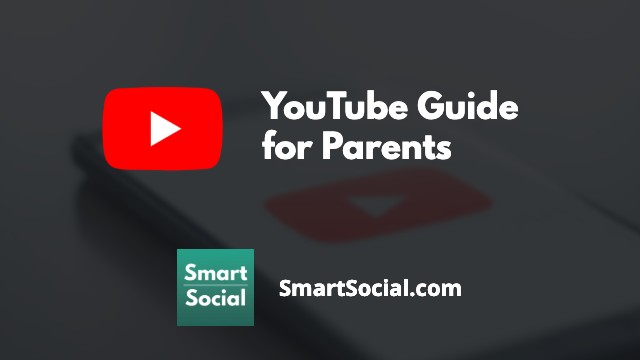7 Predator Phrases and 3 Tips for Students to Stay Safe
Green Zone App
(Click here to learn more)
Dangerous Social media challenge
(Click here to learn more)
Red Zone App
(Click here to learn more)
Gray Zone App
(Click here to learn more)
Being targeted by an online predator might not seem “scary” or “suspicious” at first. The stranger might make you feel comfortable and understood, especially if you already are upset about something happening in your life. But, as they build their “friendship” with you, they start convincing you to do things you wouldn’t normally do with anyone you know in person.
Watch our video on YouTube, or listen to our podcast to learn more about the 7 things predators say online to trick us. We’ll also share tips on how to stay safe online if you find yourself in an uncomfortable “friendship.”
7 things people say online to trick us
1. “Let’s move to another app or create another account and talk privately”
- For example, if you’re in an online game chat room, they ask for your Snapchat username so you can keep talking when the game is over
- They want to get us over to an app that our parents are not on or that parental tracking software doesn’t catch
- Snapchat and other anonymous apps that have “disappearing chats” are common so the conversations are less trackable and/or we let our guard down thinking they are going to just disappear
2. “You must be the best looking girl/boy in your school”
- Flattery is one of the most common ways predators connect with victims they want to target
- The better we feel about ourselves, the less of a risk they seem to be, even though they are still strangers
3. "Your friends and parents don’t understand you the way I do”
- They can often be very patient when listening to our problems or seem sympathetic when we feel like everyone else is against us or no one else understands what we’re going through or feeling
- They tell us what we want to hear vs. what is best for us to hear
4. “Don’t you trust me?”
- After listening to us and making us feel comfortable with them, they want us to trust them, even though we actually know very little (if anything real) about them
- It’s very hard to know if who you are talking to is actually who they say there are: an adult can easily say they are a boy or girl your age
5. “It’s just one photo, what’s the harm?” OR “I sent you my photo, it’s only fair you send me one too”
- The trick is that they build us up and very slowly ask for more
- Even if you never asked for a photo of them, they may share a photo or video with you hoping to guilt you into doing the same
- Every image you share with them, or they share with you is a way to desensitize you from protecting your privacy
6. “I’ll never share anything you send me with anyone else”
- Those “disappearing” message apps, or their promise to delete an email or message, make it seem like they can’t share or see it after they look at it
- Even the most popular apps say there are ways around screenshot notifications on disappearing messages
- We don’t know who or where images will be shared once we press send!
7. “You don’t want your friends/parents/teachers to see what you’ve already sent me”
- After building our confidence and trust, they can quickly turn to threats
- If they know we’re mad at our closest friends or parents (because we’ve vented to them about our problems already) or we think we’ll get in trouble for telling an adult what is happening, they’ll use it against us
Our #1 advice for everyone online
- NEVER send nude (or private) photos!
What predators commonly do with our photos
- Sell them to online bulletin boards for others to see and share
- Threaten to share them with the whole world
- Tell the sender they will notify the student’s school/parents with the images if they don’t get more images
- Bully the student into sending more revealing photos, videos, or to meet in person
- Turn and say terrible things that can really hurt our self-confidence they’ve worked to build
- And more....
What to do if someone threatens you online
- STOP communicating with them
- Then, tell a trusted adult what has been happening, no matter what the person online says they will do if you tell
- It’s hard to admit we were tricked, but the longer it goes on, the harder it is to admit it and the worse we feel
- Find a friend or family member you can talk with more to replace the void of no longer talking to someone you didn’t really know in the first place, but felt so comfortable with
Listen to MomTalk about predators online
Conclusion
Using social media to keep in touch with close friends we know in person or family members can be a great way to connect with people we trust. Strangers online are waiting for us to feel vulnerable so they can build our trust and eventually convince us to do things we wouldn’t do. Being knowledgeable about what they might say can help you stay safe online AND help you keep your friends safe when they tell you about their new “friend” online.
Protect your family and enter for a chance to win cool prizes
Become a member or log in to learn more on this topic
Protect your family and enter for a chance to win cool prizes

., start learning from this page to earn points!*
Hello, I'm Josh, the founder of SmartSocial.com.
Don't leave this page until you fill out our feedback form that will appear after you learn from the resources...
Here are some of the latest resources at SmartSocial.com
Become a Very Informed Parent (VIP) to get our social media suggestions in your email every Tuesday & Thursday.



Hello, I'm Josh, the founder of SmartSocial.com. Protect your family by taking my 1 minute quiz
This quiz will help you understand how safe your family is


Schools & Districts: Partner with us to protect your community online
Our remote presentations (and website) teach over a million parents and students each year how to be safe so they can shine online. We teach students how their accounts can be used to create a portfolio of positive accomplishments that impress colleges and employers.


Join Our Smart Social Podcast
each week on iTunes
With over 500 episodes, Josh Ochs interviews psychologists, therapists, counselors, teachers, and parents while showing you how to navigate social media to someday shine online.
Listen on:



.jpg)

.jpg)

_.jpg)
.png)